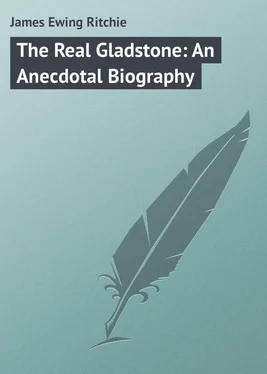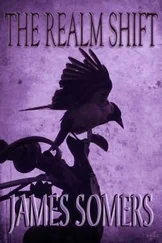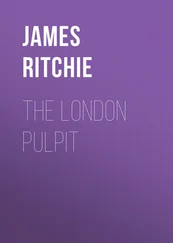James Ritchie - The Real Gladstone - An Anecdotal Biography
Здесь есть возможность читать онлайн «James Ritchie - The Real Gladstone - An Anecdotal Biography» — ознакомительный отрывок электронной книги совершенно бесплатно, а после прочтения отрывка купить полную версию. В некоторых случаях можно слушать аудио, скачать через торрент в формате fb2 и присутствует краткое содержание. Жанр: foreign_prose, на английском языке. Описание произведения, (предисловие) а так же отзывы посетителей доступны на портале библиотеки ЛибКат.
- Название:The Real Gladstone: An Anecdotal Biography
- Автор:
- Жанр:
- Год:неизвестен
- ISBN:нет данных
- Рейтинг книги:4 / 5. Голосов: 1
-
Избранное:Добавить в избранное
- Отзывы:
-
Ваша оценка:
- 80
- 1
- 2
- 3
- 4
- 5
The Real Gladstone: An Anecdotal Biography: краткое содержание, описание и аннотация
Предлагаем к чтению аннотацию, описание, краткое содержание или предисловие (зависит от того, что написал сам автор книги «The Real Gladstone: An Anecdotal Biography»). Если вы не нашли необходимую информацию о книге — напишите в комментариях, мы постараемся отыскать её.
The Real Gladstone: An Anecdotal Biography — читать онлайн ознакомительный отрывок
Ниже представлен текст книги, разбитый по страницам. Система сохранения места последней прочитанной страницы, позволяет с удобством читать онлайн бесплатно книгу «The Real Gladstone: An Anecdotal Biography», без необходимости каждый раз заново искать на чём Вы остановились. Поставьте закладку, и сможете в любой момент перейти на страницу, на которой закончили чтение.
Интервал:
Закладка:
Everyone was amazed, and the party he had left was very angry. Greville writes: ‘Gladstone’s explanation was ludicrous. Everybody said that he had only succeeded in showing that his explanation was quite uncalled for.’ It is perfectly clear that no one was able to understand the explanation. In a letter to Mr. W. E. Forster, Cobden wrote: ‘Gladstone’s speeches have the effect on my mind of a beautiful strain of music; I can rarely remember any clear unqualified expression of opinion on any subject outside his political, economical and financial statements. I remember on the occasion when he left Sir Robert Peel’s Government on the Maynooth question, and when the House sat in unusual numbers to hear his explanation, I sat beside Villiers and Ricardo for an hour listening with real pleasure to his beautiful rhetorical involutions and evolutions, and at the close turning round to one of my neighbours and exclaiming, “What a marvellous talent is this! Here have I been listening with pleasure for an hour to his explanation, and I know no more why he left the Government than when he commenced.”’
A little prior to this speech Mr. Gladstone had secured a follower in the person of Mr. Stafford Northcote, afterwards Lord Iddesleigh, as private secretary. ‘From what I know of Mr. Gladstone’s character,’ writes Mr. Northcote to his father, ‘there is no single statesman of the present day to whom I would more gladly attach myself; and I should think, from the talent he has shown for business since he came into office, there is no one more likely to retain his place unless any revolution takes place.’ To another friend, Mr. Northcote, on his acceptance of the office, writes: ‘With any other man than Gladstone I might have hesitated longer. But he is one whom I respect beyond measure; he stands almost alone as the representative of principles with which I cordially agree; and as a man of business, and one who, humanly speaking, is sure to rise, he is pre-eminent.’ A little later Mr. Northcote writes to a lady: ‘I look upon him’ (Gladstone) ‘as the representative of the party scarcely developed as yet, though secretly forming, which will stand by all that is dear and sacred, in my estimation, in the struggle which will come ere very long between good and evil, order and disorder, the Church and the world; and I see a very small band collecting around him, and ready to fight manfully under his leading.’
In a letter to a friend, Mr. Gladstone thus explains his retirement from office: ‘My whole purpose was to place myself in a position in which I should be free to consider my course without being liable to any just suspicion on the ground of personal interest. It is not profane if I say, “With a great price obtained I this freedom.” The political association in which I stood was to me, at the time, the Alpha and Omega of public life. The Government of Sir Robert Peel was believed to be of immovable strength. My place, as President of the Board of Trade, was at the very kernel of its most interesting operations.. I felt myself open to the charge of being opinionated and wanting in deference to really great authorities, and I could not but see that I should be evidently regarded as fastidious and fanciful, fitter for a dreamer, or possibly a schoolman, than for the active purposes of public life in a busy and moving age.’
While at the Board of Trade Mr. Gladstone found time to devote himself as ardently as ever to ecclesiastical subjects. He was one of the party supremely interested in the establishment of an Anglican Bishop at Jerusalem. Lord Shaftesbury describes how, in connection with the event at a dinner given by Baron Bunsen, ‘he’ (Gladstone) ‘stripped himself of a part of his Puseyite garment, and spoke like a pious man.’ Bunsen, writing of Gladstone’s speech, says: ‘Never was heard a more exquisite speech: it flowed like a gentle and translucent stream… We drove back to town in the clearest starlight, Gladstone continuing, with unabated animation, to pour forth his harmonious thoughts in melodious tones.’
In 1845 Mr. Gladstone contemplated a visit to Ireland. ‘Ireland,’ he writes to an Oxford friend, ‘is likely to find this country and Parliament so much occupation for years to come that I feel rather oppressively an obligation to try and see it with my own eyes, instead of using those of other people, according to the limited measure of my means.’ The visit, however, was not paid. He went to see Dr. Dollinger at Munich instead.
In the winter Mr. Gladstone, while out shooting, met with an accident that necessitated the amputation of the first finger of his left hand.
It must not be forgotten that early in his official career Mr. Gladstone was Under-Secretary for the Colonies under Lord Aberdeen. Henry Taylor, who was then one of the permanent officials, writes: ‘I rather like Gladstone, but he is said to have more of the devil in him than appears, in a virtuous way – that is, only self-willed. He may be all the more useful here for that. His amiable looks and manners deluded Sir James Stephen, who said that for success in public life he wanted pugnacity.’ By the time he quitted office, Taylor owns that they had come to know him better. ‘Gladstone left with us a paper on negro education, which confirmed me in the impression that he is a very considerable man – by far the most so of any man I have seen among our rising statesmen. He has, together with his abilities, great strength of character and excellent disposition.’ In a letter to his friend Hudson Gurney, Lord Aberdeen, one of the ablest statesmen modern England has known, writes: ‘In consequence of the defeat of my Under-Secretary in the county of Forfar, I have been obliged to appoint another. I have chosen a young man whom I did not know, and whom I never saw, but of whose good character and abilities I have often heard. He is the young Gladstone, and I hope he will do well. He has no easy part to play in the House of Commons, but it is a fine opening for a young man of talent and ambition, and places him in the way to the highest distinction. He appears to me so amiable that I am sure, personally, I shall like him.’ It is interesting in this connection to note Mr. Gladstone’s opinion of Lord Aberdeen. He thus describes the interview: ‘I knew Lord Aberdeen only by public rumour. I had heard of his high character, but I had also heard of him as a man of cold manners and close and even haughty reserve. It was dusk when I entered the room, so that I saw his figure rather than his countenance, and I remember well that before I had been three minutes with him all my apprehensions had melted away like snow in the sun, and I came away from that interview conscious indeed – as who could not fail to be conscious – of his dignity, but of a dignity so tempered by a peculiar purity and gentleness, and so associated with impressions of his kindness and even friendship, that I believe I thought more about the wonder at that time of his being so misunderstood by the outer world than about the new duties and responsibilities of my new office.’ Ministers were beaten by Lord John Russell, who carried a resolution in favour of applying the surplus revenues of the Irish Church to general education, and Mr. Gladstone retired to private life, working hard at his chambers in the Albany, studying mainly Homer and Dante and St. Augustine. He went freely into society, though refusing to attend Mr. Monckton Milnes’ Sunday evening parties. He was a frequent attendant at St. James’s, Piccadilly, and at All Saints’, Margaret Street – all the while speaking when occasion required in Parliament and working hard on Committees.
CHAPTER IV
M.P. FOR OXFORD UNIVERSITY
In 1845 the Whigs, failing to form a Cabinet, resigned, and Sir Robert Peel was again in office to carry the abolition of the Corn Laws. After resigning office, Mr. Gladstone published a pamphlet on ‘Recent Commercial Legislation,’ the tendency of which was in favour of the conclusion that all materials of industry should, as far as possible, be set free from Custom duties. When Lord Stanley refused to accompany his chief in the achievement of Free Trade in corn, Mr. Gladstone became, in his place, Secretary of State for the Colonies. But the Duke of Newcastle would not allow Mr. Gladstone his seat for Newark – he had turned his own son, Lord Lincoln, out of the representation of Nottingham for a similar reason – and Mr. Gladstone was out of Parliament when the question of Free Trade was being fought and won. Early in 1847 it was announced that there would be a vacancy in the representation of Oxford, and Mr. Gladstone was selected for the vacant seat. It was known to all that to represent Oxford University was Mr. Gladstone’s desire, as it had been that of Canning. In May, 1847, a meeting was held in Oxford in favour of Mr. Gladstone’s candidature. The canvassing went on with more than the usual excitement in a University constituency. There was an electioneering Gladstonian rhyme worth preserving. The anti-Gladstonians had difficulty in finding a candidate.
Читать дальшеИнтервал:
Закладка:
Похожие книги на «The Real Gladstone: An Anecdotal Biography»
Представляем Вашему вниманию похожие книги на «The Real Gladstone: An Anecdotal Biography» списком для выбора. Мы отобрали схожую по названию и смыслу литературу в надежде предоставить читателям больше вариантов отыскать новые, интересные, ещё непрочитанные произведения.
Обсуждение, отзывы о книге «The Real Gladstone: An Anecdotal Biography» и просто собственные мнения читателей. Оставьте ваши комментарии, напишите, что Вы думаете о произведении, его смысле или главных героях. Укажите что конкретно понравилось, а что нет, и почему Вы так считаете.












